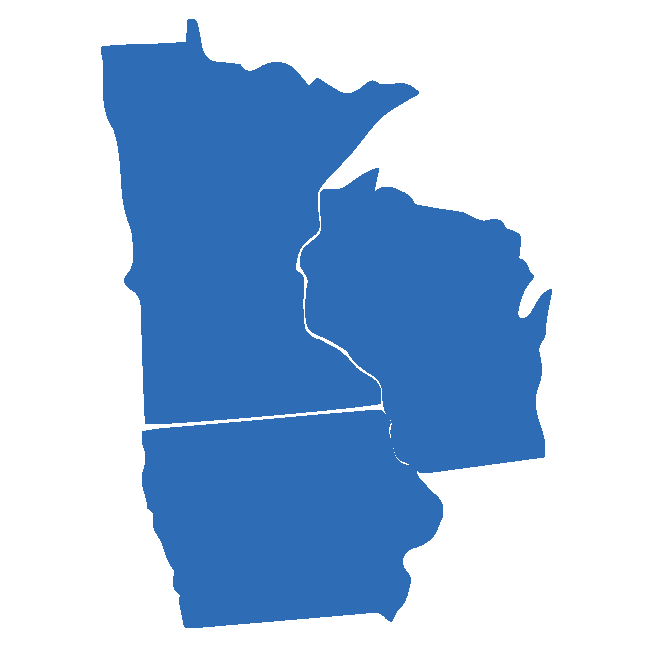Truck accidents can be life-altering events. At Johnston | Martineau PLLP, we are committed to providing the guidance and support you need during these challenging times. Take a look at some of the most common questions our clients ask:
How long do most truck accident settlements take?
Generally, a settlement can take anywhere from a few months to several years. The complexity of the case, the severity of injuries, and the willingness of the insurance company to settle can all influence the timeline. Simple cases with clear liability and minor injuries might settle quickly, while more complicated cases involving significant injuries, disputed liability, or multiple parties can take longer.
Whose insurance will cover my truck accident injuries?
Typically, the at-fault party's insurance should cover your damages. If the truck driver is found to be at fault, their employer’s insurance policy might be responsible for covering your injuries and other losses. However, if the truck driver is an independent contractor, their personal insurance or a policy provided by the trucking company might be involved.
Can I receive compensation for the death of my loved one?
Yes, you can receive compensation when your loved one is killed by the operation of a commercial motor vehicle. Depending on where the crash occurred, that may include medical expenses, lost wages, your loved one’s pain and suffering, funeral expenses, etc. In addition, you may be able to recover for the loss in companionship, comfort, aide, support, guidance, etc. To successfully claim compensation, it is important to gather evidence right after the crash happens. The insurance company likely has a lawyer on call and at the scene within hours of the crash. By consulting with our experienced truck accident attorneys, we can guide you through the legal process and help you get the compensation your family deserves for the wrongful death of your loved one.
What evidence will help my truck accident claim?
Strong evidence is critical in building a successful truck accident claim. Important pieces of evidence include:
Accident Scene Photos
Capture images of the accident scene, vehicle damage, skid marks, road conditions, and any visible injuries. These photos provide a visual representation of the incident.
Police Reports
A police report typically contains critical details, including statements from involved parties and the officer’s determination of fault.
Medical Records
Detailed medical documentation of your injuries and treatments is important to establish the severity of your damages.
Truck Driver Logs and Records
These logs reveal whether the driver complied with federal regulations, such as hours-of-service limits and safety protocols.
Videos from Trucks and Other Sources
Footage from onboard truck cameras, nearby businesses, highway department cameras, and local shops can provide insight into the events leading to the accident.
911 Call Recordings
These recordings often contain firsthand accounts of the accident, which can help establish a timeline of events.
Witness Information
Gathering contact information and statements from witnesses can add credibility to your account of the accident.
Electronic Control Module (ECM) Downloads
The truck’s ECM, or "black box," stores data about the vehicle’s speed, braking, and other actions leading up to the crash.
Site Mapping and Investigations
Accident reconstruction experts may create maps and simulations to analyze how the collision occurred.
Maintenance and Service Records
These records can reveal if the truck received regular maintenance or had known mechanical issues that were ignored.
Shipper and Broker Documents
These documents may indicate the responsibilities and potential liability of other parties involved in the shipment.
Trip Documents
Trip logs, itineraries, and delivery schedules provide details about the truck driver’s activities and timeline before the accident.
How is negligence proven in truck accidents?
Proving negligence in truck accidents involves showing that the truck driver or another party failed to act with reasonable care, leading to the accident. This requires establishing four key elements:
Duty of Care: Demonstrating that the defendant owed you a duty of care. For example, truck drivers are expected to operate their vehicles safely. A trucking company is expected to hire qualified and competent drivers that obey the Federal Motor Carrier Safety Regulations and state equivalents.
Breach of Duty: Proving that the breach of duty directly caused the accident and your injuries for a driver. For a company, showing that the company hired or retained an unfit driver. It could also be showing that they filed to take actions that a reasonable trucking company would take in supervising the unfit driver, such as not training the driver.
Causation: Proving that the breach of duty directly caused the accident and your injuries.
Our attorneys can help gather the necessary evidence and build a strong case to prove negligence and secure compensation.
Johnston | Martineau PLLP is Here to Help
From a fender benders to fatal truck accident cases, we tackle a broad spectrum of truck accident legal matters. We've secured million-dollar settlements for our clients. Put our experience to work in your case. Contact Johnston | Martineau PLLP, today to get started.


